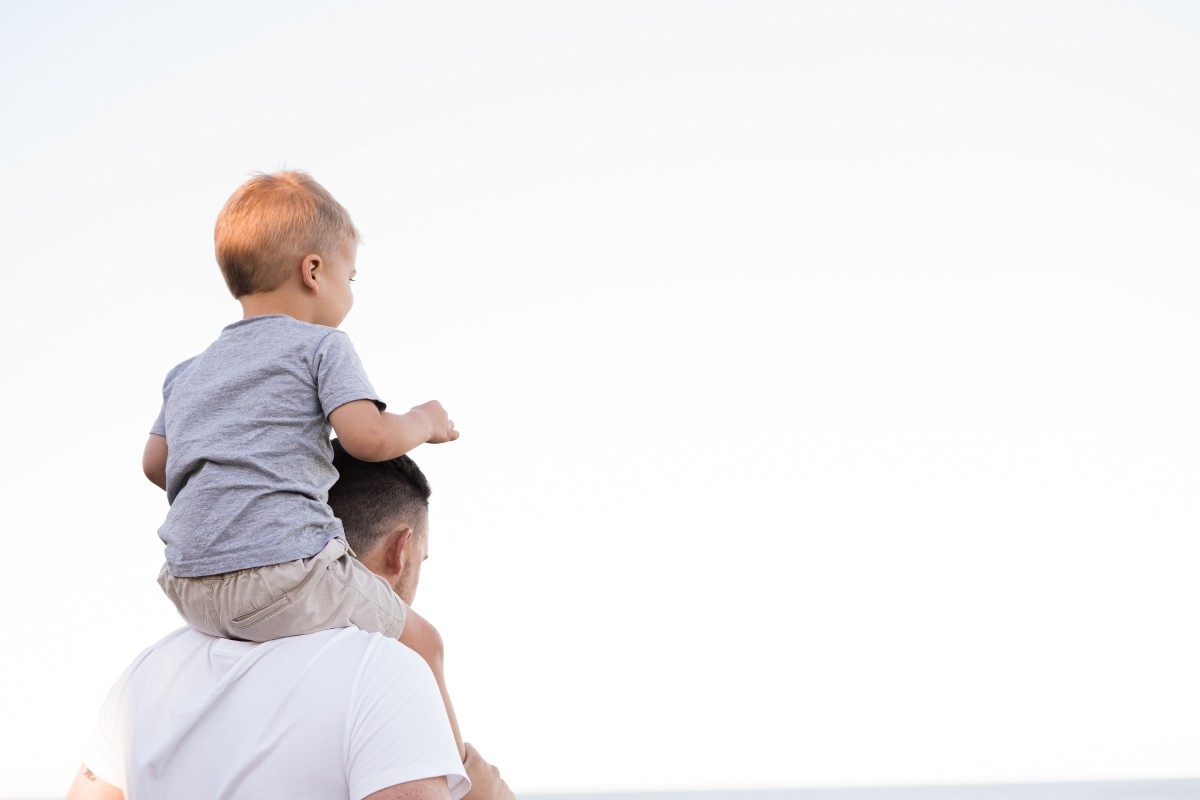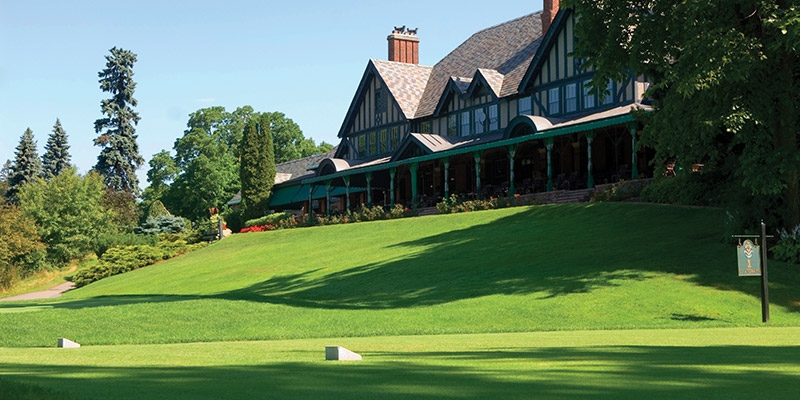
The Shopping Cart ?— Some thoughts on parenting styles
Who could miss the expressions of absolute sheer pride and delight on the faces of Prince Harry and his gorgeous wife Meghan Markle, Duchess of Sussex, as they showed their firstborn son to the waiting world only hours after his birth on May 6, 2019? Who among those who have been blessed to become a father or mother has not wondered just how he or she will parent their completely dependent human baby, when they feel like a panicked pup thrown into the centre of a crystal clear blue lake from a leaky wooden rowboat, forced to learn the dog paddle in a ‘sink or swim’ situation? Meghan must be feeling a bit like she just got a new starring role in a potentially blockbuster movie with an unwritten script, unsure how she will play the part alongside her handsome costar, Prince Harry, with its many unknown demanding scenes, when both of them are but neophytes cast in this very public improv film!
C.S. Lewis once wrote "Children are not a distraction from more important work. They are the most important work." And most of us who choose to take on the role of a parent in life, want to do the best job possible in raising our progeny. Just how we make that play out is for all first timers a gargantuan life challenge!
Accurate statistics on the number of people who become parents in life are difficult to obtain because there are many ways to measure fertility rates. It is likely safe to say that most societies value their members becoming parents in adulthood. Anshui Ranjou on Quora estimates that 89.615% of people become parents worldwide.Sreeram Srinivasan suggests 99% of married couples end up as parents. The Organization for Economic Cooperation and Development states that 17% of USA women remain childless at about age 40, The World Fertility Report of 2009 states that 4% of women in India are childless, 25.7% of women under 50 are childless in China and 20% of women in Australia are in the same category. The numbers seem to vary country by country and are affected by social, cultural, and religious norms as well as educational levels and economic factors.
Children seem to grow up and survive first time parents, most of whom are unsure of what they are doing, everywhere. We are all uncertain of exactly what is right and best because there have been all kinds of approaches to the task, and like the branch of mathematics known as probability, developed in medieval times by Freidrich Gauss and Christian Huygens, each child rearing method is only able to give you a possibility of raising a healthy competent human to adulthood. None can be counted on to have the 100% guaranteed desired outcome. In research, the accurate causal links to bring out the best in every boy or girl are difficult to isolate so definitive conclusions and generalizations are almost impossible to determine. As well, defining what the desired outcome after parenting a child to adulthood should be, and how that can be measured, varies from individual to individual and from culture to culture.
Helen Pearson, in a book entitled ‘The Life Project’, discussed the findings of a 70 year longitudinal study in post WWII Britain of about 70,000 infants born in England, Scotland and Wales on this subject. These were the ‘best studied human children ever and there were two major conclusions.
The first was that the accident of your conception by parents who are ‘not poor’ is associated with successful adults. Warren Buffet refers to this as the ‘Ovarian Lottery’. Children born into economically disadvantaged families do less well by any measure. They are more likely to struggle in life, be less educated, have poorer jobs be less healthy and die earlier.
The second conclusion is that parenting matters and most of the parenting factors are achievable by any parent regardless of economic status. How encouraging that effective involved parents can close the gap between those who start behind and those who get that head start because of money!
Kendra Cherry outlines the three styles of parenting delineated by Diana Blumberg Baumrind in the 1960s, in a paper entitled ‘Why parenting styles matter in raising children’ in June, 2019. The ‘Authoritarian’ style is characterized by parental strict rules, punishment, high expectations and unexplained reasoning. The ‘Authoritative’ style has more democratic rules and guidelines, higher expectations, warmth, responsiveness and support, forgiveness, and a focus on developing independence and self regulation. The ‘Permissive’ style is indulgent, has lower expectations for maturity and self control, offers little discipline, and places the parent in the role of a friend who is regularly nurturing and communicative. Maccoby and Martin suggested a fourth type called ‘ Uninvolved’, characterized by few demands, low responsiveness, little guidance, structure, support or communication.
The conclusion of researchers on these types were that ‘Authoritarian’ style parents produce children who are obedient, with social and life competence but who are lower in happiness.’ Authoritative’ parents raise children who are generally happy, capable and successful adults.’ Permissive’ parenting produces children who often perform less well in school, have difficulties with authority and self regulation and have lower scores on happiness scales. ‘Uninvolved’ parenting results in low self control, low self esteem,and low competence in comparison to peers.
The impact of self esteem on human development was first introduced in 1890 as the work of William James, the father of modern psychology. Other schools of thought that suggested that outside forces beyond one’s control affected human development most, dominated until the 1960’s. At that time psychology professor Stanley Coopersmith in California and Canadian American psychotherapist Nathaniel Branden became significant intellectual exponents of the ‘Self Esteem’ movement.
Abraham Maslow, another American psychologist in the last century, became well known for his delineation of the hierarchy of needs and maintained we need both esteem from others as well as inner self respect. He postulated that self esteem is one of our basic human motivations and required for self actualization. He believed it is influenced by genetics, life experiences and inner thinking about ourselves and our circumstances.
An article by Kendra Cherry entitled ‘ What exactly is Self Esteem? speaks of this concept as a positive sense of self worth or personal value and says a realistic positive view of self is ideal. Those with it, accept their strengths and weaknesses, can express their needs and can navigate the challenges in their life path with confidence, believing they can accomplish their goals and deal with their problems. Those without it, tend to have a negative outlook, a lack of confidence, an inability to express needs, a focus on weaknesses,a fear of failure, a belief that others are better than themselves, and feelings of anxiety, depression and powerlessness to change their situations.
I found a lot of merit in learning this theory in psychology, trying to apply it to children in my life and much has been written about it. Brian Tracy said ‘ Self confidence is the foundation of all great success and achievement.’ Alvin Price writes’ Parents need to fill a child’s bucket of self esteem so high that the rest of the world can’t poke enough holes to drain it’. And Jim Walwano said’ My father gave me the greatest gift anyone could give another person, he believed in me’.
I encourage any new parent to read up on this topic and ways to build positive self esteem in a child. The literature is replete with great suggestions about how to nurture it in children, such as recognizing children for the good things they do, helping them set reasonable achievable goals for themselves, allowing children to carry lots of responsibility, sharing one’s own values, beliefs, decisions,successes and failures, or letting them think out solutions to their own problems while supporting their efforts to deal with most adversity by themselves.
Many theories and philosophies about how children develop and many strategies that direct us in parenting and teaching our human young, reflect the ideas of some brilliant, and some not so brilliant, minds over time. It is a study worthy of years if not a lifetime of learning.
Today, we hear much about ‘Helicopter Parents’ who take on an overprotective or excess interest in the life of their child. While well intentioned to keep their children safe and give lots of involvement and direction, many with this approach do not realize that failure, making mistakes and having to figure out ways to solve problems or to do anything better and then try once again, is a needed and valuable experience. It helps a child to grow in competence, confidence and independence. Ann Landers says ‘It is not what you do for your children but what you have taught them to do for themselves that will make them successful human beings’.
Another current parenting style is the ‘ Snow Plow Parent’, or the ‘Lawnmower Parent’, who constantly removes all obstacles in a child’s path for them. These parents will do almost anything to guarantee their child’s success by removing adversity that their child faces. . A good example of this style is the recent College admissions crimes where rich parents paid big sums of money in bribes, or falsified documents or information about their offspring, to guarantee that their children would be accepted at elite universities in the USA. Children with this kind of parenting often cannot handle failure, or solve their own problems. They show less resilience, demonstrate little preparation for life’s obstacles and struggles, cope less well on their own and often have little maturity in making decisions. Robert A. Heinlein cautions against this kind of approach, with ‘Do not handicap your children by making their lives easy.’
The ‘Tiger Mom’ is another popularly referred to parenting style, which Wikipedia describes as a strict or demanding parent who puts pressure on children to attain high levels of academic achievement or success in extra curricular activities like music or sports. It focuses on achievement, competition,advantages, elite universities,cultural and socioeconomic status and pursuit of distinction, according to Garnett Schneider in ‘The Problem with Tiger Moms’. Authoritarian child rearing methods are employed. Hannah Park in ‘The Lasting Effects of Tiger Moms’ states that this parenting style is characterized by physical discipline, depression, anxiety, fear, suicide ideation, a strong sense of obligation to parents and in the freedom of adulthood, drug usage and quitting school. An example might be a parent who insists his/her child practice a musical instrument for a lengthy period of time each day for years, long after the child has indicated his/her preference for a different extracurricular activity.
Art Patel from National Global recently wrote about a new style of parenting suggested by Esther Wojcick in the Telegraph, called ‘Panda Parenting’. It advocates giving children freedom to make decisions for themselves within reason. It is a more hands off style where parents are a ‘guide on the side’ and let children learn from their own mistakes, pick up responsibilities at a younger age, and make independent decisions more freely and earlier. An example of this style might be requiring your school age child to deal with a poor grade from his teacher him or herself, after helping him/her come up with a list of many options for fixing the problem as he/she can.
However reliable research to confirm that parenting style and child behaviour outcomes are correlated is weak at best. Some have suggested that genetic factors and temperament are at play as well. Douglas Bernstein in Essentials of Psychology states that ‘ There is no universally best style of parenting’!. After a half century of work with children, and parents as both a parent myself, as a teacher and as a social worker in child welfare I would have to say, in the words of Albert Einstein, ‘The more I learn, the more I realize how much I don’t know..’ That is for sure!
Every parenting style and approach has some merit by someone’s values and everyone has drawbacks by someone else’s. How any one of them is actually implemented, by whom, with whom, where, under what conditions and with what consistency are but a few factors at play. No matter how you do it, you will have judgements made by others, both supporters and critics, I predict.
And so I suggest my ‘Shopping Cart’ style for new parents, to create their own home made original recipe for bringing out the best in the little one they have the privilege and responsibility to raise. Then decide for yourself what works best for your offspring. Let the success of your style be evident in your child’s success and happiness in the environment in which he/she must live going forward. The proof of the pudding is in the eating!
Load up your ‘Shopping Cart’ with plenty of all kinds of parenting books, courses, discussions, talks, videos, seminars, consultations, modelling, reflection and advice from those you respect and admire. Add in methods your family, culture and community employ that you like. Mix in a good dose of ideas on parenting that you wished your parents, culture and community had used on you but did not. Make sure your unconditional love and a lifetime commitment to your child is obvious to him/her in your constancy, your calm consistent behaviour, your communications including your facial expression, your gestures, your words, and your tone. Be sure your style always supports his/her positive sense of self worth, uniqueness and value to the world. Finally, ensure whatever you do, teaches your child to be competent in facing problems and that he/she has the skills he/she needs to solve the challenges that the bends and twists in life’s journey will most assuredly present.
In 1935, George Gershwin created a folk opera entitled ‘Porgy and Bess’ from which the beautiful aria ‘ Summertime’ comes. It has been sung by jazz greats such as Ella Fitzgerald, Billie Holiday, Duke Ellington, Louis Armstrong and by our own Canadian jazz songstress, Rebecca Noelle at the June 25, 2019 DOMS concert, entitled ‘All- Star Soul Hour’. It is a thought provoking, uplifting, lullaby reflecting on the potential of life for a child by a parent. It’s words contain a simple summary of the protective role of parents whose task it is to provide, protect and guide. They are awaiting and celebrating the day they say to their child ‘ you’ll spread your wings and you’ll take to the skies!
Gershwin wrote:
Summertime, and the livin 'is easy,
Fish are jumpin’ and the cotton is high.
Your daddy is rich, and your ma is good lookin’,
So hush little baby don’t you cry.
One of these mornings you’re gonna rise up singing,
And you’ll spread your wings and you’ll take to the skies.
But till that morning there ain’t nothing can harm you
With daddy and mammy standin’ by.
The role of parents described in that iconic lullaby is applicable ubiquitously. There are many ways, not one way, to achieve that inevitable and important function of all human parents: to take children from total dependence on adults to total independence, with love, allowing them to become whom they were meant to be, while encouraging in them a joyful anticipation and a strong capacity to experience and contribute positively to life.
As for Meghan Markle and Prince Harry, their baby Archie has won the ‘Ovarian Lottery’. May he know his parents’ love and commitment always. May he flourish in confidence and competence every day until he is an educated, compassionate grown man, ready to spread his wings and take to the skies!
And if Meghan and Harry, or you, are searching for a parenting style, may I recommend ‘The Shopping Cart’ ?













